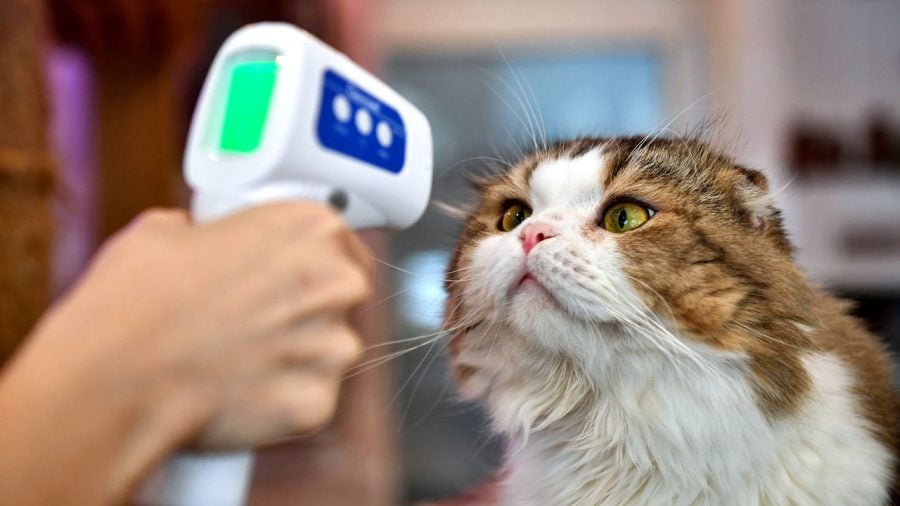According to a study, covid is prevalent in companion cats and dogs whose owners have the disease.
Swabs were collected from 310 pets in 196 homes where the presence of human infection had been discovered.
Six cats and seven dogs were positive for viral antibodies, while 54 animals tested positive for PCR results.
“If you have Covid, you should avoid contact with your cat or dog, just as you would do with other people,” Dr. Els Broens, from Utrecht University, said.
“The main concern is not the animals’ health but the potential risk that pets could act as a reservoir of the virus and reintroduce it into the human population.”
According to the study, there has been no evidence of pet-to-owner transmission yet, although it would be impossible to detect while the virus was still readily transmitted between people.
The majority of affected dogs are asymptomatic or have minor Covid symptoms.
Utrecht University researchers dispatched a mobile veterinary clinic to homes in the Netherlands that had tested positive for Covid in the previous 200 days.
Blood samples were examined for antibodies indicating previous exposure to Covid, while swabs were obtained from their pet cats and dogs to check for signs of a present infection.
At the European Congress of Clinical Microbiology and Infectious Diseases, the findings were presented:
A current infection was found in 4.2 percent of the participants.
Antibodies were found in 17.4 percent of the participants.
All of the PCR-positive (polymerase chain reaction) animals eradicated the infection and developed antibodies, according to follow-up testing.
According to the experts, viral transmission is more likely to go from human to animal rather than the other way around.
“We can’t say there is a 0% risk of owners catching Covid from their pets,” Veterinary Microbiological Diagnostic Centre Dr Broens said.”At the moment, the pandemic is still being driven by human-to-human infections, so we just wouldn’t detect it.”
Russian veterinarians have begun immunizing certain animals against the illness.
But Dr. Broens said: “I don’t see the scientific evidence for that now.
“It seems unlikely that pets play a role in the pandemic.”
Second research conducted by the University of Guelph in Ontario, Canada, discovered that cats that slept on their owners’ beds were more susceptible to illness.
Covid antibodies were tested in 48 cats and 54 dogs from 77 homes, and their owners were questioned about their interactions with their pets.
In comparison, 9 percent of dogs and cats from an animal shelter and 3% of stray cats in the region tested positive, with 67 percent of owned cats and 43 percent of owned canines testing positive.
A quarter of the dogs showed signs of the illness, ranging from lack of appetite to respiratory difficulties.
Three of the instances were serious, despite the fact that the majority were minor.
Cats’ biochemistry, according to the study’s authors, may render them more vulnerable to Covid.
Cats are also more prone than dogs to sleep close to their owners’ faces, increasing their risk of illness.
Prof James Wood, the director of Cambridge University’s veterinary medicine department, said the two investigations added to previous data indicating that a significant percentage of cats and dogs may acquire the virus from their owners.
“The Dutch study is robustly conducted and shows that around 20% of exposed pets may be infected and that they eventually clear the infection just as most humans do,” he said.
“Most reports are that this infection appears to be asymptomatic.
“It also seems that the virus does not normally transmit from dogs and cats to either other animals or their owners.”
Read more: https://pakobserver.net/health/










